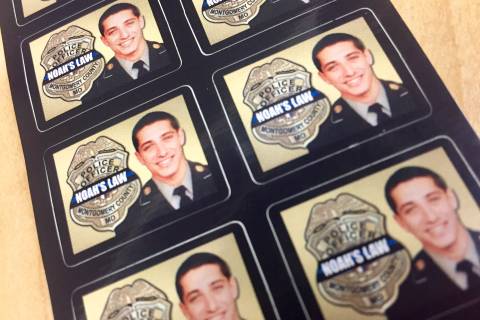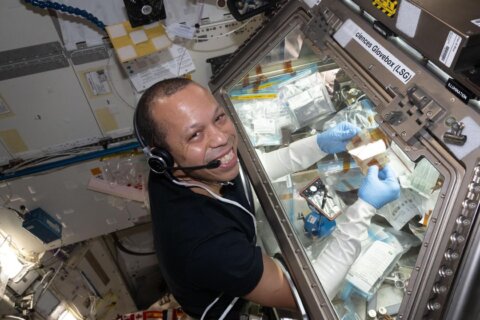WASHINGTON — The advocates who helped push through Noah’s Law in 2016 worry the law isn’t being enforced to its full extent, calling it a danger to the community and to someone who is caught driving drunk.
To honor the legacy of fallen Montgomery County Police Officer Noah Leotta, his father Rich said they are preparing for their next endeavor.
“Myself and a group of others are building a coalition to effectively change that behavior of your judges,” Leotta said. “It’s called Noah’s on Patrol. We’re looking at Montgomery County first because Montgomery County is obviously where he was working at the time and where he was a police officer.”
Leotta hopes to announce the campaign before the start of summer.
“Noah’s Law is not being used as the tool that it was supposed to be used for,” he said. “Making sure Noah’s Law went into place is just one part of the aspect to make sure Noah’s On Patrol. That’s my sound legacy.”
Leotta said he is already started sitting in courtrooms when judges begin hearing cases and handing out sentences related to drunken driving arrests.
He hopes the coalition will become a visible enough presence that judges will know they’re being watched and expected to require interlocks as part of a sentence.
“We’re looking at judicial consequences, where our judges instead of just giving a slap on the wrist with no consequences for a PBJ [probation before judgment],” Leotta said. “That they at least assign an interlock.”
Defense lawyers point out that in several cases, someone caught drunken driving will already have an interlock assigned to their car upon their arrest, even before they show up in court.
However in many cases that requirement can run out within six months to a year.
Leotta said he isn’t demanding judges throw the book at every one who shows up in court, but he argues they should be included in someone’s probationary sentence.
“With leniency, you can still protect the victims and community,” Leotta argued. “By ensuring that as an aspect of a PBJ that you have an interlock.”
“Look we don’t want people to go to jail, we understand that. And for a first or second offense and they haven’t hurt anybody … what we’re trying to do is change their behavior so they don’t do it again.”








